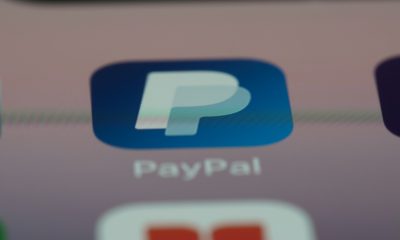Fintech
JPMorgan’s Data Fees Shake Fintech: PayPal Takes a Hit
JPMorgan Chase will charge fintechs for customer data, threatening business models reliant on free access. PayPal’s stock plunged 5.7% after the news, highlighting market fears. Rising costs could hurt margins and trigger further selloffs. A looming “death cross” signals technical weakness. Investors now face a key decision: hold, sell, or buy into PayPal’s uncertain future.

JPMorgan Chase has dealt a serious blow to the fintech sector. The largest US bank plans to charge fees for access to customer data in the future – a move that could fundamentally threaten the business models of many payment service providers. PayPal has already felt the painful effects of this new reality.
Fintech shock: When data suddenly costs money
The news hit the markets like a bolt of lightning. JPMorgan Chase, the heavyweight among US banks, is turning off the money tap: Fintech companies will now have to pay for customer data that was previously available free of charge. For payment service providers like PayPal, this means a drastic deterioration in their cost structure.
The core issue lies in the fact that a large number of fintech business models depend heavily on having free access to customer banking data. The introduction of sudden fees for this data could have a significant negative impact on their profit margins and potentially disrupt entire value chains. The stock market responded immediately—and with harsh consequences.
Should investors sell immediately? Or is it worth getting started with PayPal
PayPal quickly became the primary target of investor backlash in the market. On Friday, the company’s stock experienced a sharp decline, dropping by 5.7 percent and ending the day as the worst performer in the entire S&P 500 index.
The exceptionally high trading volume further emphasized the intense selling pressure directed at PayPal shares.
Technical picture deteriorates dramatically
The recent crash has also exacerbated the technical situation. PayPal is now trading below key moving averages, confirming its clear downtrend. Particularly threatening: A possible “death cross”—if the 50-day line falls below the 200-day line—could trigger further selling pressure.
The question remains: Can PayPal hold its own against the new cost structures or will the big bank offensive be the death knell for the fintech business model?
PayPal Stock: Buy or Sell?! New PayPal analysis from July 13 provides the answer:
The most recent figures released by PayPal make a clear and undeniable statement on the company’s current situation. As a result, shareholders are now faced with a pressing need to make a decision and take immediate action. The key question they must consider is whether it is wiser to buy more shares or to sell.
__
(Featured image by Brett Jordan via Pexels)
DISCLAIMER: This article was written by a third party contributor and does not reflect the opinion of Born2Invest, its management, staff or its associates. Please review our disclaimer for more information.
This article may include forward-looking statements. These forward-looking statements generally are identified by the words “believe,” “project,” “estimate,” “become,” “plan,” “will,” and similar expressions. These forward-looking statements involve known and unknown risks as well as uncertainties, including those discussed in the following cautionary statements and elsewhere in this article and on this site. Although the Company may believe that its expectations are based on reasonable assumptions, the actual results that the Company may achieve may differ materially from any forward-looking statements, which reflect the opinions of the management of the Company only as of the date hereof. Additionally, please make sure to read these important disclosures.
First published in boerse-express. A third-party contributor translated and adapted the article from the original. In case of discrepancy, the original will prevail.
Although we made reasonable efforts to provide accurate translations, some parts may be incorrect. Born2Invest assumes no responsibility for errors, omissions or ambiguities in the translations provided on this website. Any person or entity relying on translated content does so at their own risk. Born2Invest is not responsible for losses caused by such reliance on the accuracy or reliability of translated information. If you wish to report an error or inaccuracy in the translation, we encourage you to contact us

-

 Crypto2 weeks ago
Crypto2 weeks agoBitcoin Wavers Below $70K as Crypto Market Struggles for Momentum
-

 Biotech2 days ago
Biotech2 days agoInterministerial Commission on Drug Prices Approves New Drugs and Expanded Treatment Funding
-

 Africa1 week ago
Africa1 week agoMorocco’s Tax Reforms Show Tangible Results
-

 Biotech5 days ago
Biotech5 days agoUniversal Nanoparticle Platform Enables Multi-Isotope Cancer Diagnosis and Therapy
























